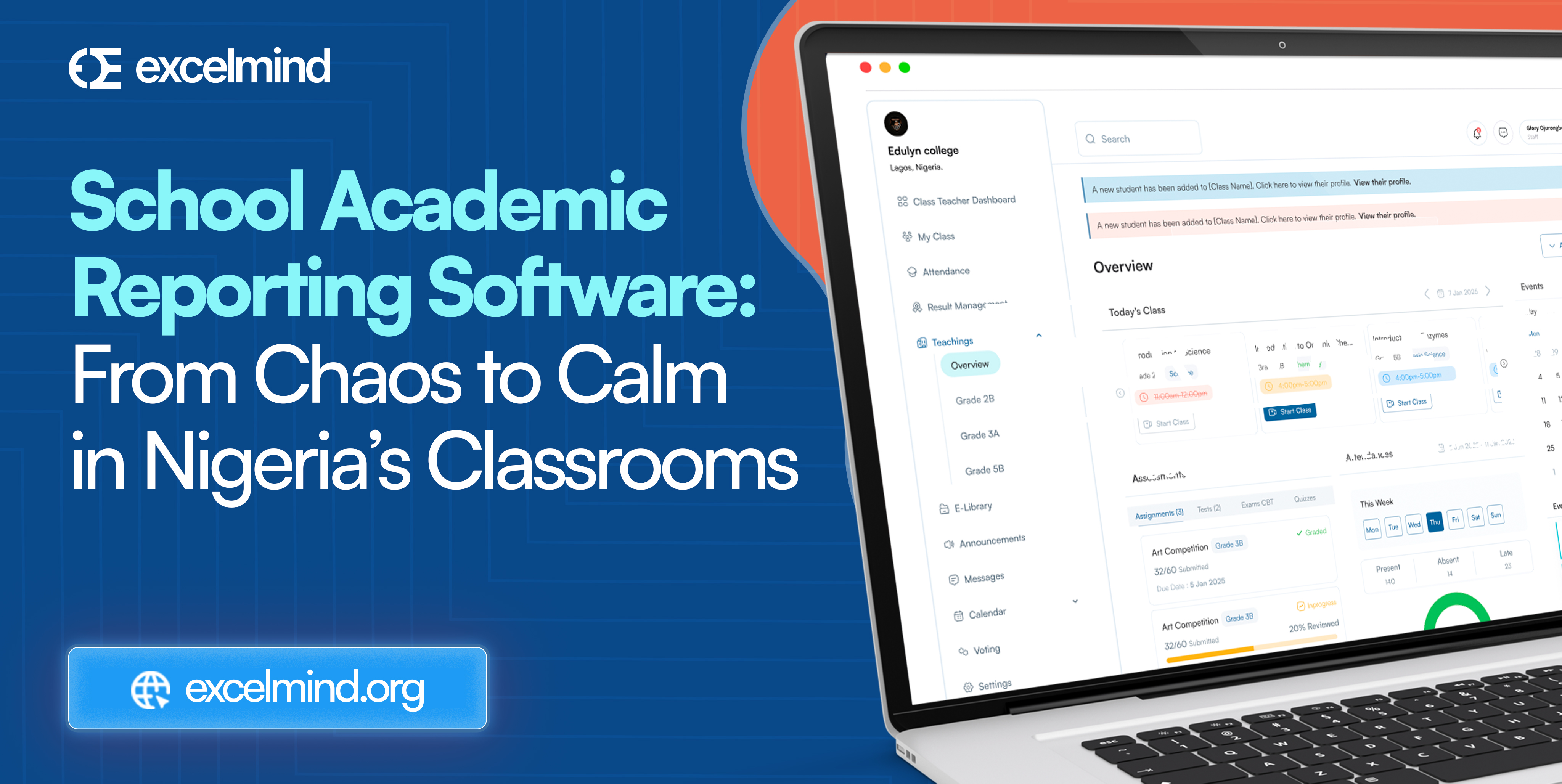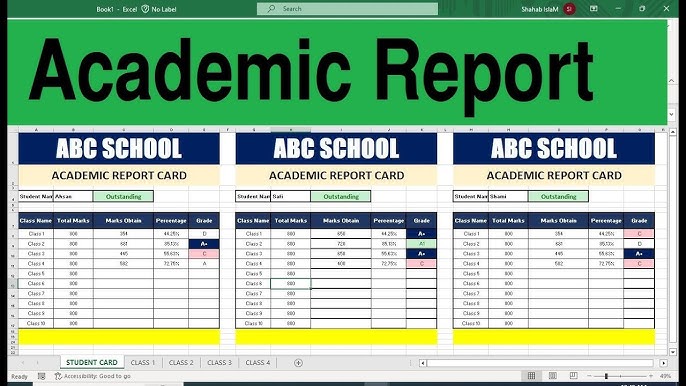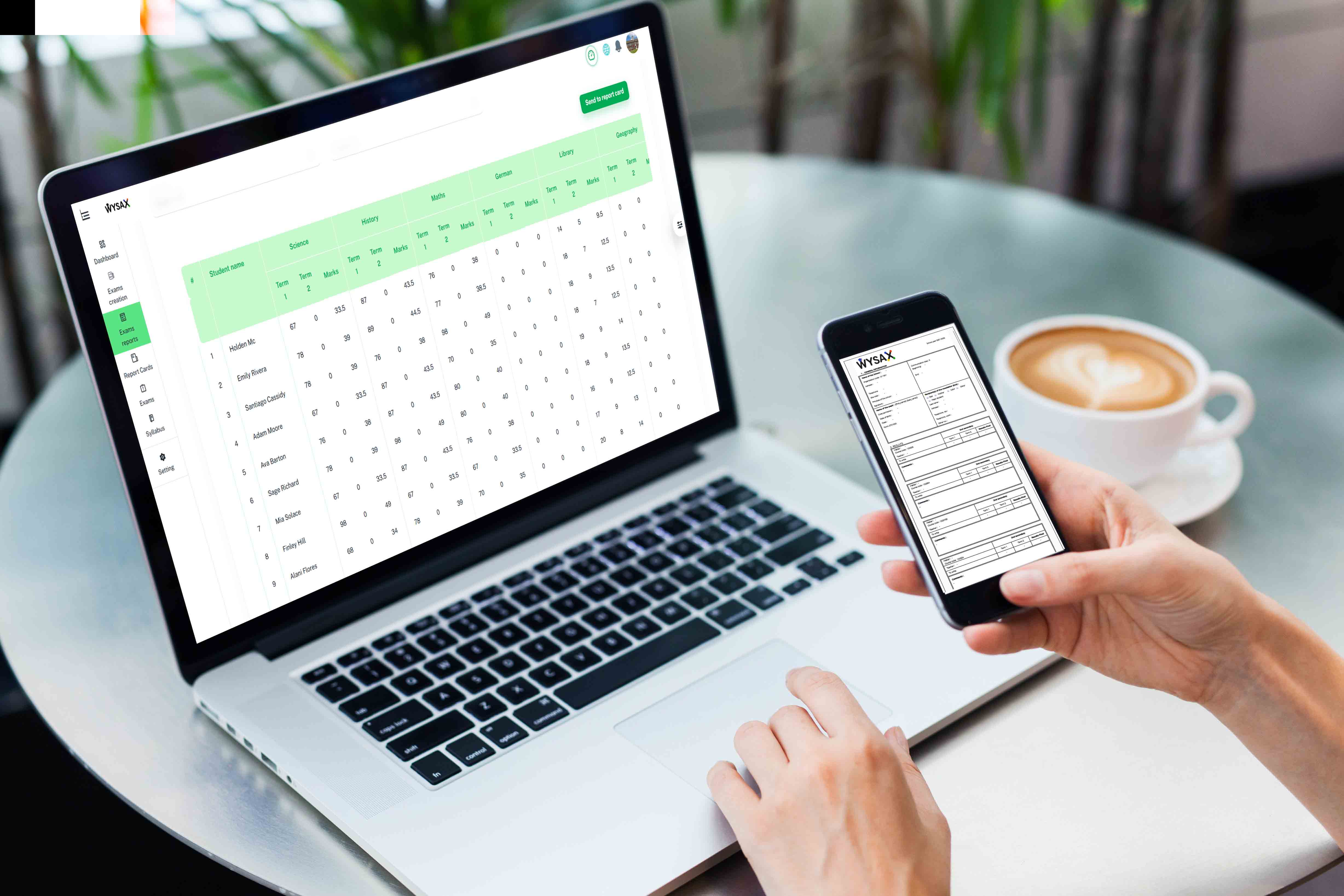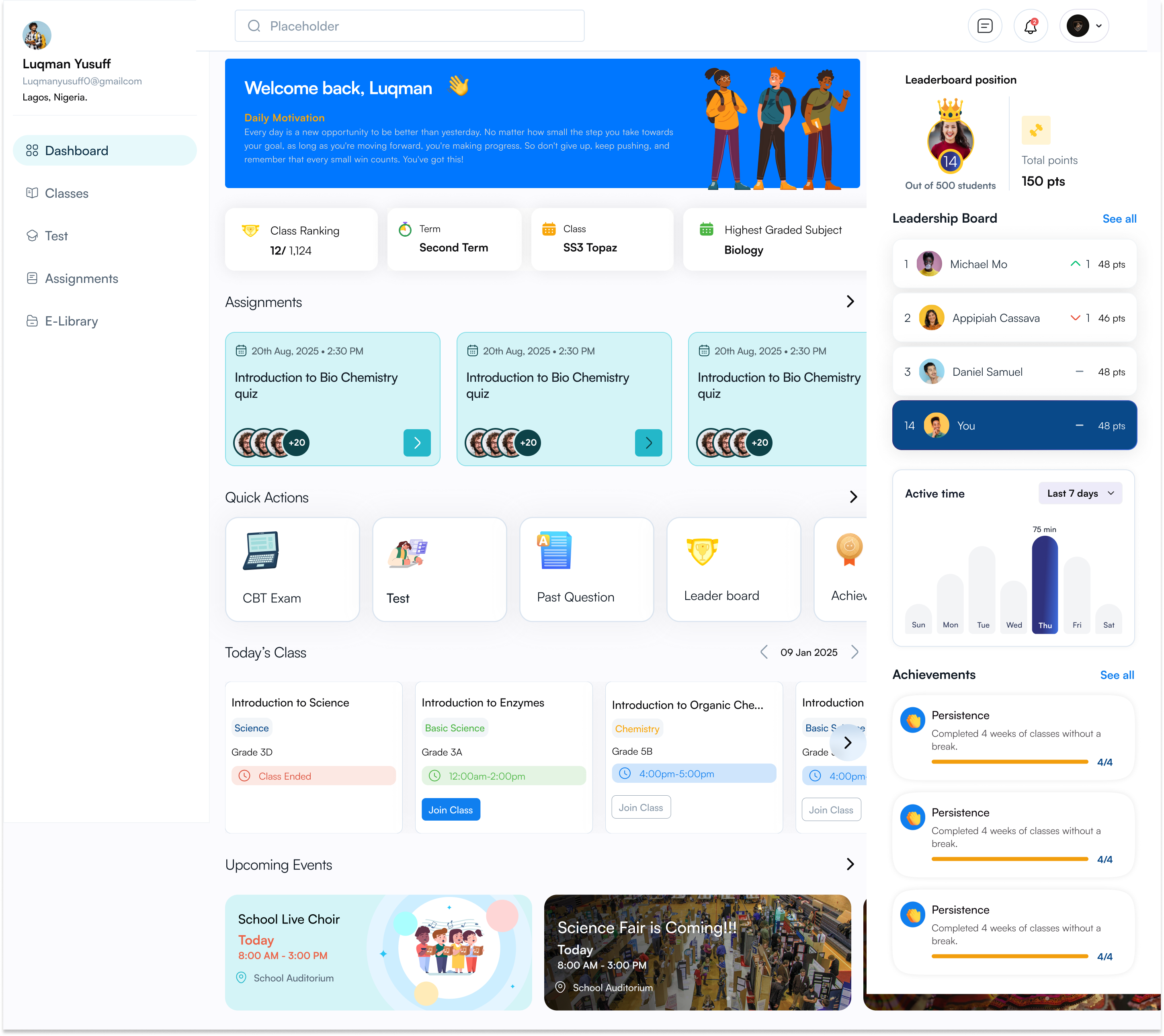Physical Address
304 North Cardinal St.
Dorchester Center, MA 02124

School academic reporting software goes beyond just being a tool; it’s a lifeline for overwhelmed educators drowning in mountains of paperwork and broken systems. As a principal, you will be staring helplessly at endless stacks of grade sheets threatening to bury you.
It’s the silent crisis gripping the educational system, but there’s a new answer breaking through the chaos, a school academic reporting software that changes exhaustion into efficiency, fear into control, and frustration into hope.

We’ll tell you hidden problems no one talks about, like government data integration, strict data privacy under NDPA, offline support for remote areas, to tools that empower students and lighten teacher workloads. Most importantly, you’ll learn why ExcelMind stands apart as the beacon of change, ready to lead your school from chaos to calm, forever.
Read: Top 10 Best ERP School Management Software
Running a school in Nigeria or anywhere in Africa often means juggling a thousand tasks. When it comes to academic reporting, preparing report cards, tracking performance, and sharing results, many schools still rely on paper and pen or basic spreadsheets. This manual process creates serious challenges:
These challenges aren’t just theoretical; they affect real people every day. Imagine a student in Kano waiting months for a transcript to transfer schools because records couldn’t be found. Or a parent in Nairobi is upset that they learned about their child’s struggles too late. The traditional way is broken.

In simple terms, school academic reporting software is a digital tool (usually part of a broader school management system) that streamlines how schools record, manage, and share students’ academic performance. Instead of piles of paper and manual calculations, everything is done through a secure platform, on a computer or even a smartphone.
While Others will stop at praising the basic features, we promised to go further. There are critical gaps that generic software often misses, especially in Nigeria and African settings. Let’s explore these one by one and see how ExcelMind, a leading school academic reporting software designed for our context, addresses each one in detail.
School data is sensitive. It includes personal details of children and families, grades, health information, etc. In Nigeria, the importance of data privacy has been underscored by the Nigeria Data Protection Act (NDPA) 2023, which became law on June 12, 2023. Schools must now treat data carefully and comply with this regulation (and similar laws across Africa).
A lot of schools (and even some software providers) are not fully aware of data protection requirements. Using a generic app that stores data overseas or lacks security measures could violate laws and put student privacy at risk. A breach or misuse of student data can have serious consequences, both legally and in loss of trust.
Internet connectivity in Africa can be unreliable or expensive. Many rural or underserved urban areas have patchy networks. Even in cities, power cuts (the infamous “NEPA take light” in Nigeria) can disrupt online access. A school software that only works online might leave teachers stranded when the connection drops.
Some foreign software assumes constant high-speed internet, which isn’t the reality in much of Nigeria/Africa. Schools need a solution that can work offline or with minimal bandwidth. Otherwise, during outages, all digital systems halt, and teachers may revert to paper, defeating the purpose.
One of the silent issues in education is teacher workload. As mentioned, teachers often work long hours. Introducing any new system, we must ask: will it lighten their load or add to it? The ideal software should not only save teachers time but also give insights into their workload so school leaders can support their staff better.
Traditional reporting tasks burn up teacher hours and energy. But beyond that, schools rarely analyze how teachers are spending their time. Which teachers are overloaded with large classes or excessive admin duties? Where can processes be improved to reduce burnout? Without analytics, these questions remain unanswered.
Education isn’t just about teachers and administrators, students are the heart of it all. Yet, in many schools, students are passive recipients of their results. They get a report card at the end of the term, often with surprises (good or bad) that they didn’t see coming.
What if we involved students more in tracking their own progress? A great school reporting software should provide a student-facing dashboard that lets learners monitor their performance and take charge of their education.
Without access to ongoing performance data, students may lack self-awareness about their learning. If a student only learns at term-end that they were failing math, it’s too late to improve that term. Also, today’s students (raised in a digital age) expect information at their fingertips. Not providing this can make school feel outdated or less engaging to them.
Adopting new technology in a school can be scary. Teachers and staff might worry: “Is it too complex? Will it add to my work? I’m not good with computers!” A common gap when introducing school software is a lack of proper training and onboarding. No matter how great a tool is, if people don’t know how to use it, it won’t deliver results.
Many software providers drop a tool into schools with minimal training, leaving the staff to figure things out. In Nigeria and Africa, where some teachers may not be very tech-savvy and may have had little exposure to school management software, this can lead to poor adoption.
A fancy system could end up underutilized or even abandoned if the users aren’t comfortable with it. Training is essential, and it needs to be in simple language, contextualized to local school processes.
Let’s face it: budget is a major concern for schools, especially in the public sector or smaller private institutions. School leaders in Nigeria and Africa must be convinced that any investment yields clear returns. When considering a school’s academic reporting software, they’ll ask: “How much does it cost? Can we afford it? Is it truly worth it? What’s the return on investment (ROI)?”
Some school management systems are expensive, with high upfront fees or subscription costs. Others might be cheap (or even free) but lack important features, ending up costing more in inefficiency.
Additionally, ROI in education isn’t just in naira or shillings, it’s also in time saved, better outcomes, increased enrollment (if parents are happier), etc. Many existing articles gloss over the cost discussion, but it’s a key factor for decision-makers.
We live in an age where Artificial Intelligence (AI) is touching every industry, education included. While AI in education is still emerging in Africa, forward-thinking schools are curious about how it can help them.
Predictive analytics powered by AI can identify patterns and trends that humans might miss, enabling proactive interventions for student success. However, most discussions on school reporting skip this because it’s “cutting edge”. Not us, let’s talk about it.
Without AI, schools rely purely on human analysis of data (if they analyze at all). A teacher or counselor might not notice that a student’s performance has slipped gradually across five subjects, indicating a bigger issue, especially if the school is large.
Or a principal might not realize that a certain intervention (like an after-school tutoring program) is working great for math scores because the data is buried in spreadsheets. Traditional software may report data, but not really interpret it.
It’s clear that ExcelMind isn’t just another generic software; it’s a comprehensive solution built for the realities of Nigerian and African schools. It addresses all the typical gaps that others often ignore, making it an ideal choice for any school aiming to modernize its academic reporting and management.

Let’s look at how ExcelMind covers the bases:
| Challenge or Need | How ExcelMind Addresses It |
| 1. Security & NDPA Compliance | Cloud storage with encryption and autosave; NDPA 2023 compliant (protects personal data, obtains proper consent); strict role-based access and audit logs for data privacy. |
| 2. Offline & Low Connectivit | Offline mode allows usage without internet; syncs later; optimized for low bandwidth and power, runs on basic devices, ensuring continuity during outages. |
| 3. Teacher Workload & Analytics | Automates grading and report generation (huge time saver); dashboard shows teacher activity to identify overwork; helps redistribute tasks; overall 60-80% reduction in reporting workload (e.g., 40→8 hours) |
| 4. Student Dashboard Experience | Student login to track their own grades and progress in real time; encourages self-motivation and accountability; user-friendly interface engages students in their learning journey |
| 5. Training & Onboarding | Hands-on training for staff in simple terms; local support for questions; alignment with local curriculum and terminology; ongoing updates and help to ensure all users are comfortable. |
| 6. Cost & ROI | Affordable pricing model for African schools; saves money on paper, printing, and staff hours (high ROI); improves parent satisfaction leading to better enrollment and reputation; low total cost of ownership with maintenance included. |
| 7. AI & Predictive Features | Built-in AI alerts for at-risk students and trends; predictive analytics for performance and resource planning; continuously updating with new AI tools so schools stay ahead in innovation |
As you can see, ExcelMind provides a combined solution. Many competitors might cover one or two of these points, but ExcelMind covers them all. It was explicitly stated to be designed for Nigerian schools, and that local focus shows in every feature, from support for NECO/WAEC style grading to being mindful of electricity issues.
Schools that have adopted ExcelMind often share heartwarming success stories. They talk about how life has changed in their halls and offices: teachers are less stressed and more focused on teaching, students are more engaged, parents are pleasantly surprised by the transparency and communication, and principals finally have the data they need at their fingertips to make informed decisions.
Also: Nursery School Management Software: Less Stress, More Smiles
Education is often called the passport to the future, and managing education effectively is how we ensure that the passport is valid and strong. If you’re a school administrator, teacher, or even a parent reading this, ask yourself: How much better would our school be if we could eliminate the reporting chaos and focus on what truly matters, teaching and learning?
The answer, as we’ve seen, is alot better. Implementing a robust school academic reporting software like ExcelMind can change your school environment. It takes you from late-night frustrations to daytime freedoms from tedious tasks, freedom to access information anytime, and freedom to make informed decisions swiftly.
Are you ready to experience the ExcelMind difference? Visit the ExcelMind website or contact their team today to schedule a demo or free trial. See for yourself how simple it is to use (you’ll be amazed, we promise) and how much value it delivers from day one.
Bring your teachers on board, involve your IT folks, and watch the excitement build when they realise how much easier their jobs (and lives) could be. Together, let’s turn every story of chaos into a story of triumph.
ExcelMind is the best software for schools because it’s designed for Nigerian and African schools, offering easy reporting, strong security, offline use, and great support.
The best software to create school reports is ExcelMind because it automates grading, generates accurate report cards quickly, and works well even with low internet access.
Microsoft Word is commonly used in schools for writing documents, while Excel is used for managing data like grades and attendance.
The cost of reporting software varies, but ExcelMind charges a yearly subscription based on the number of students. Small schools pay less, while larger schools pay more. This pricing model keeps it affordable and fair. There are no large upfront fees, and the subscription covers updates, support, and training. Overall, schools save money by reducing paper, printing, and staff overtime costs, making ExcelMind cost-effective and a smart investment.
Yes, Excel can be used as a reporting tool to create reports, organise data, and perform calculations. However, it lacks automation and specialised features that dedicated school academic reporting software like ExcelMind offers.